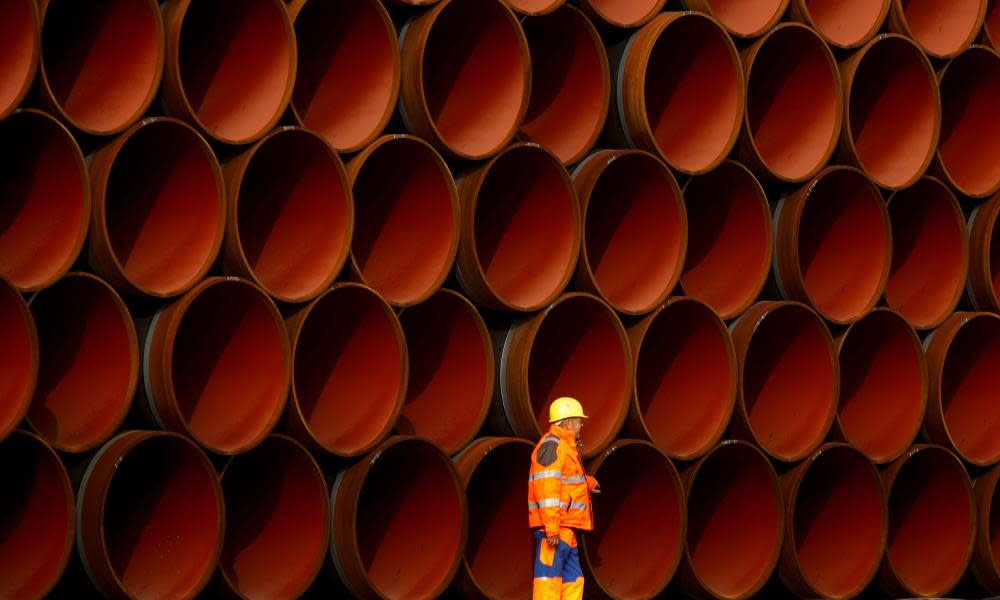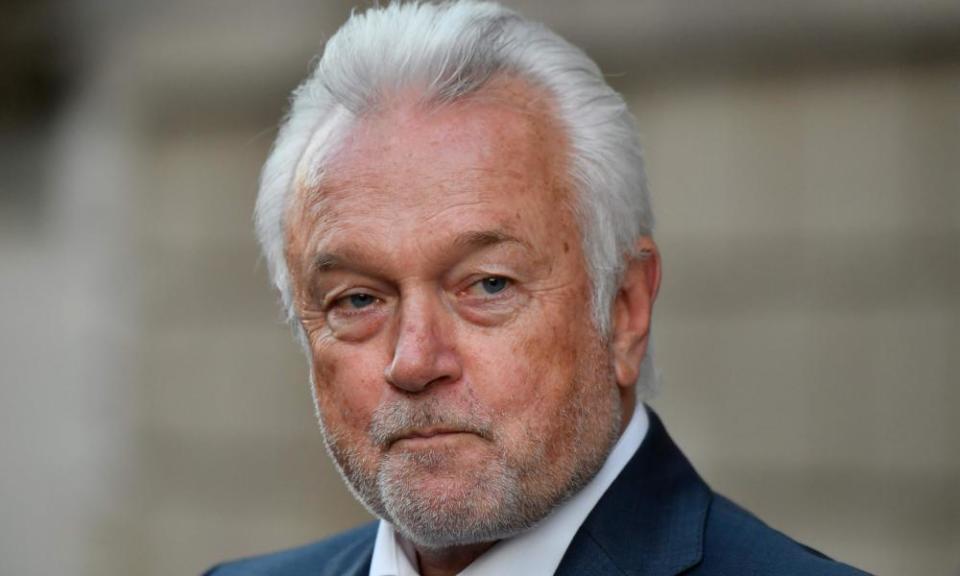Questions over German politician's 'links to Russian pipeline'

A candidate vying to be Germany’s next finance minister is facing questions over possible links to lobbying on behalf of Russia’s controversial Nord Stream 2 pipeline project as his party enters crunch talks to form the next government.
An email seen by the Guardian links Nord Stream 2 lobbying to the deputy leader of the pro-business Free Democrats (FDP), Wolfgang Kubicki, throwing into doubt cross-party claims of a “more critical” attitude towards the contentious energy deal in a potential three-party coalition alongside Angela Merkel’s Christian Democrats and the Greens.
Kubicki, also deputy president of the Bundestag, has been touted as a frontrunner to succeed Wolfgang Schäuble at the top of the German finance ministry if his party enters government. Coalition talks are ongoing between the three parties following the September election.
The email was sent just a week after the election to a group of influential European energy analysts and thinktanks, aggressively promoting the advantages of Nord Stream 2 – the proposed Baltic Sea pipeline between Vyborg in Russia and Greifswald in Germany that many say runs counter to the strategic interests of the European Union.
It was signed off “in collaboration with Kubicki & Schöler, Attorneys at Law”, the law firm where Wolfgang Kubicki is a founding partner, and from which he presumably either receives a salary or share of the firm’s profits.
Nord Stream 2 is a project of Gazprom, of which the Kremlin is a majority shareholder, and states in eastern Europe and the Baltics fear the pipeline will threaten European energy security and increase Russian influence in Germany.
Promising that Nord Stream 2 will make EU wholesale prices of gas 32% lower by 2020 and that there will be “no legal need for an agreement between the EU and Russia” to give the project the go-ahead, the email is authored by a former German ambassador with links to the FDP, Frank Elbe.

In response to questions from the Guardian, Elbe has confirmed that he has worked with Kubicki’s law firm, but only on “criminal cases with an international dimension”, while Kubicki’s partner at law, Hendrick Schöler, said his firm still worked with Elbe and referred to him as “our colleague”.
Elbe denied that he was engaged in lobbying activity, stating that his mandate was “limited to advisory services”. The unsolicited email, however, talks about Nord Stream 2 in the first person plural (“we expect to receive permit decisions in the five relevant countries by the end of Q1 2018”).
Kubicki & Schöler explicitly deny they have a client with a direct link to “the building of Nord Stream 2”. However, Elbe did not rule out that he had such a client, stating that “legal reasons prevent me from giving information regarding existing legal client relations”.
The Kiel-based law firm has remained intransparent about its clients as its business and the political career of one of its partners have flourished: for the past five years, Kubicki has been the only one of 69 members of the state parliament of Schleswig-Holstein to refuse to declare his second income.
Kubicki is already under fire for representing Hanno Berger, a former tax inspector who stands accused of engineering the biggest tax fraud scandal in German postwar history, using legal loopholes to siphon up to €30bn out of the state’s coffers. Former finance minister Peer Steinbrück has said that promoting Kubicki to the finance ministry would amount to “life imitating satire”.
German politicians have advocated the advantages of Nord Stream 2 in the past, but until now support for the project has been largely associated with the centre-left Social Democratic party, whose former leader Gerhard Schröder joined Nord Stream’s shareholder committee shortly after stepping down as chancellor in 2006 and has been Nord Stream 2’s manager since 2016.
With the SPD likely to go into opposition, politicians from Merkel’s party have started to promise a more critical approach to the Russian-backed project. “It is clear that the new government will be a lot more critical of the project than the previous one,” CDU politician Norbert Röttgen said recently. Kubicki’s promotion to the finance ministry would throw that claim into doubt.
“Former ambassador Elbe seems to be lobbying on Nord Stream 2’s behalf, and he has close ties to Kubicki through his law firm”, said Timo Lange of LobbyControl, a transparency initiative. “This clearly poses serious questions on how deep Nord Stream 2’s lobbying activities are rooted within the liberal party.
“We can’t see who is lobbying for Nordstream 2 or competing interests and we don’t know which former politicians use their political network in these debates”, Lange added. “Given the high stakes in the debate about future energy supplies for Europe this is an unbearable situation.”
The pro-Russian turn of Germany’s Free Democrats, a traditional coalition partner of Angela Merkel’s CDU, has puzzled political observers in Berlin since the party reentered the Bundestag following a four-year absence in which many of the party’s staff and policy priorities were overhauled.
In the run up to the national vote in September, FDP leader Christian Lindner shocked many of his party’s old guard by announcing that Germany should “accept Russia’s 2014 annexation of the Crimea region of Ukraine as a ‘permanent provisional arrangement’”, as well as calling for a lifting of sanctions. One of those who defended Lindner’s comments in the German press included Elbe.

 Yahoo News
Yahoo News 
